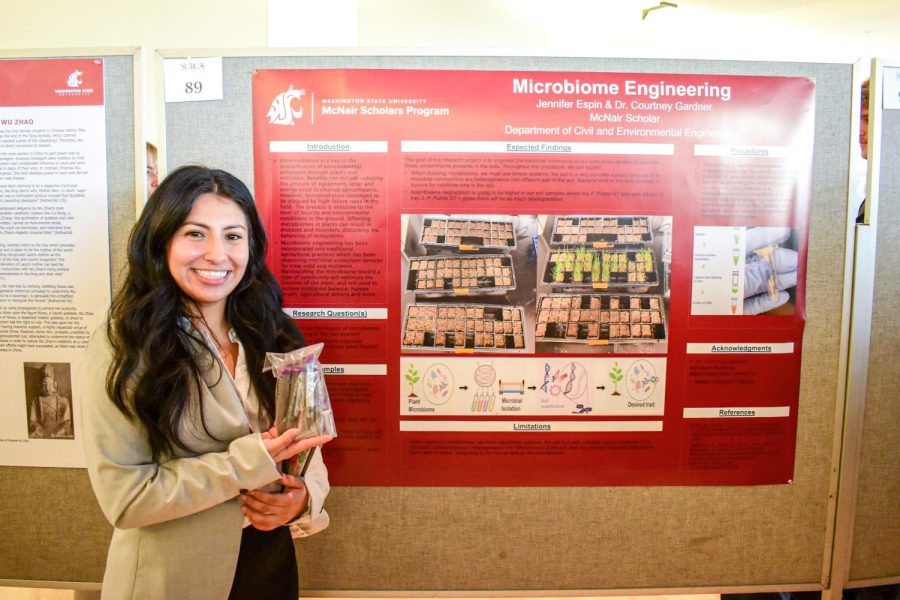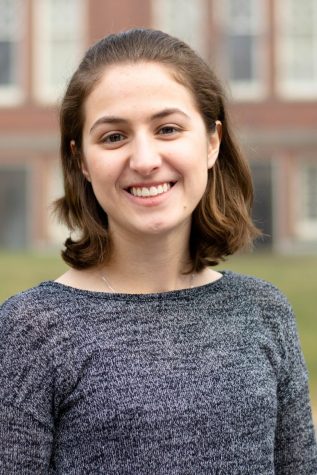Microbiome engineering could improve plant growth in contaminated soil
Undergraduate researcher extracted genetic material from soil samples, modified microbiomes to help degrade harmful bacteria
Jennifer Espin, senior civil engineering major, presented her work at the Showcase for Undergraduate Research, March 28.
March 31, 2022
WSU student Jennifer Espin hopes modifying soil with beneficial microbes could be the solution to reduced crop yield caused by agricultural contaminants like pesticides and harmful microorganisms.
Espin, senior civil engineering major, said she has normally focused on the structural side of her major, but she enjoyed getting to work with microbiome engineering because it is a practical solution to reducing labor and equipment needed for farming.
“I’m very passionate about farmers and how much work they put into learning more about plants and growing stuff for human consumption,” she said.
Espin used a technique called polymerase chain reaction to extract and amplify genetic material from the soil. This allowed her to determine what microorganisms were present in various soil samples.
Plants and soil have unique microbiomes — the collection of bacteria and other microorganisms that share a habitat — just like humans have gut microbiomes that help digest food and fight pathogens. Espin said soil microbiomes can offer certain benefits to growing plants.
Espin said she hypothesized engineering microbiomes to break down contaminants could lead to better growth outcomes for plants.
To test this, Espin has been treating grass seeds with biological contaminants that could harm plant growth or development. Espin used a bacterial strain called Pseudomonas putida as the contaminant because it is pervasive in soil.
Espin is currently testing to see if a modified microbiome will improve grass growth compared to untreated controls.
In future experiments, Espin will extract genetic material from over 200 soil samples to compare different microbiomes from soils in Washington state.
Courtney Gardner, WSU civil and environmental engineering assistant professor, mentored Espin’s research, which she presented at the Showcase for Undergraduate Research and Creative Activities on Monday.
Espin is also part of the McNair Scholars Program, a pathway that prepares undergraduates from underrepresented backgrounds for graduate studies in various fields, according to the program website.










